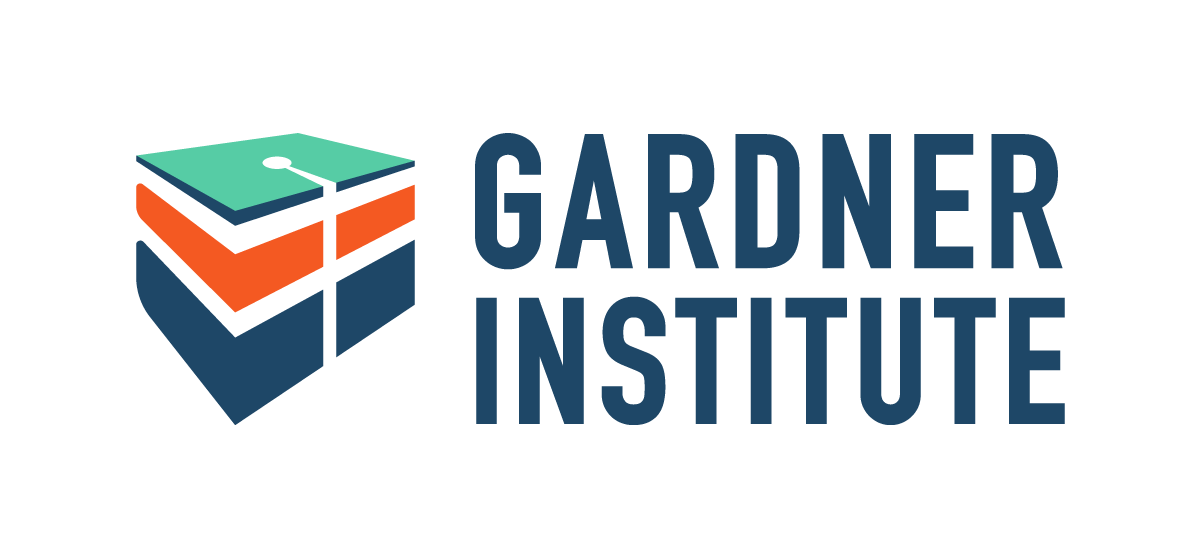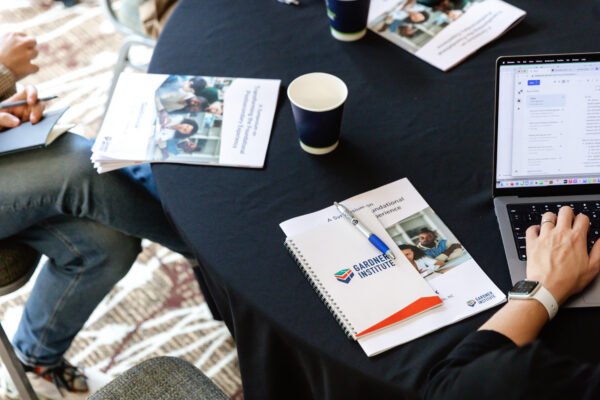Edgerton Fellows
Advancing Innovation in Higher Education
The Russell Edgerton Innovation Fellows recognizes distinctively innovative contributions to improving postsecondary education and student success while honoring the legacy of Russ Edgerton (1938-2022), an innovator and thought leader in higher education. The Gardner Institute will provide a three-year opportunity for postsecondary leaders to join a community of practice with other motivated people who are doing promising work in their respective spheres. Fellows receive a mentor, cohort collaboration, annual participation in a community of practice at the Gardner Institute symposium, a one-time honorarium of $2,500, and opportunities to network and engage with alumni and community networks.
The Edgerton Fellow selection committee will make every effort to identify new talent as honorees who are diverse in terms of race, ethnicity, age, organizational or institutional type, and academic or professional field.
Nominators:
Nominations are accepted from institutional Presidents, Chief Academic Officers, College Deans or their official designee.
Eligibility
- An accomplished innovator
- Passionate about student success
- Commited to work collaboratively
- Open to diverse perspectives
- Deeply knowledgeable in their field
- Established early-to-mid-career
Timeline
- Nomination form will be available July 15, 2023
- Nominations are due by January 30, 2024
- Selection Committee will announce a maximum of three awardees at A Symposium on Transforming the Postsecondary Experience in Pittsburgh, PA in October 2024.
Fellows will:
- Serve for three years.
- Receive a one-time honorarium of $2,500.
- Attend the Gardner Institute annual Symposium, travel expenses will be covered by the Gardner Institute.
- At the Symposium:
new fellows will be publicly recognized, all fellows will participate in the Edgerton Fellows Community of Practice and, all fellows will make a presentation and/or be part of a panel. - Receive additional opportunities to contribute thought leadership with the Gardner Institute and the greater higher education community through publications, webinars, academies, and other opportunities.
- Serve on the nominations and selection committee for future fellows.
- Receive mentorship from a Gardner Institute Board member or Edgerton Award Selection Committee member
- New fellows will be publicly recognized,
- All fellows will participate in the Edgerton Fellows Community of Practice and, all fellows will make a presentation and/or be part of a panel.
Review and Selection Committee Members:
Louis Albert, Scott Evenbeck, Peter Ewell, John Gardner (Chair), Pat Hutchings, Jillian Kinzie, Drew Koch, Leo Lambert, Arthur Levine, Ted Marchese, George Mehaffy, and Laura Rendón
2024-2027 Russell Edgerton Innovation Fellows
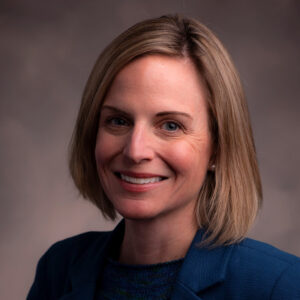
Sarah Bunnell
Director of the Center for the Advancement of Teaching and Learning at Elon University
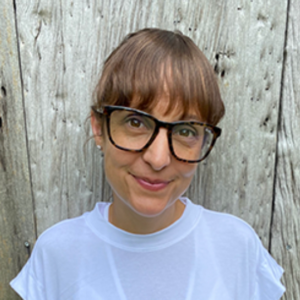
Meghan Gilbert
Associate Professor of English and the Faculty Coordinator of the First Year Experience (FYE) at Guttman Community College
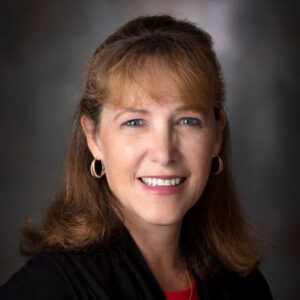
Amy Goodburn
Senior Associate Vice Chancellor and Dean of Undergraduate Education and Professor of English at the University of Nebraska-Lincoln
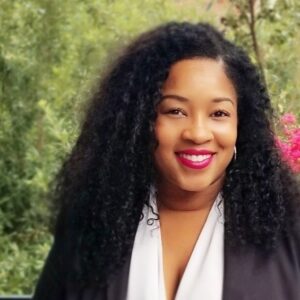
Kimberly Koledoye
Professor of Academic Student Success and Program Coordinator for the Houston Community College System
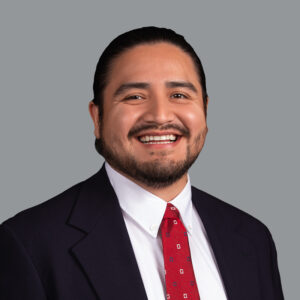
Oscar R. Miranda Tapia
Research Associate at the Belk Center for Community College Leadership and Research and a Policy Intern at North Carolina Independent Colleges & Universities
Nominations & Eligibility
Who can submit a nomination?
Nominations should be submitted by institutional Chief Executive Officers, Chief Academic Officers, College Deans or their official designee.
Who is eligible to be nominated for the Fellowship?
Faculty, lecturers, administrators, and staff of postsecondary institutions.
Is there an entry fee to nominate someone for the Fellowship?
There is no entry fee. It is free to submit a nomination.
Can I nominate myself?
No, please reach out to the CEO, CAO or College Dean of your current institution.
Can I submit an international nomination for any of the Prize categories?
Yes, all categories are open to international nominations.
Is the Edgerton Fellowship the same as the Edgerton or Edge Award?
The Edgerton Fellows established in 2024 by the distinguished Edgerton panel has emerged out of and replaces the Edgerton Awards.
Can I submit multiple nominations?
Yes, you may nominate multiple individuals for the Fellowship, but you must submit a separate nomination for each nominee.
Can I nominate someone who was nominated in prior years?
Yes, past nominees are eligible for resubmission.
How long should my responses be for the open-ended prompts?
Responses to each of the prompts should be a minimum of 100 and a maximum of 750 words.
Can I submit supplemental materials (i.e., CV or resume) for consideration?
Yes, please include a CV and additional information about the nominee under the final prompt on the form, please submit three forms of evidence/materials supporting the outcomes shared in Section 4 of the nomination form. See the application form for details.
Can we save our nomination prior to submitting it and complete it at a later time?
No, you must keep the form open until you submit it. You can download a pdf of the form here in order to prepare your answers in response.
Is it possible to edit the nomination after it has been submitted?
No, it is not possible to alter a nomination that has been submitted but you can email locke@gardnerinstitute.org if you need to correct or supply any additional information. No changes or additions will be accepted after the nomination deadline.
Other questions?
Email awards@gardnerinstitute.org
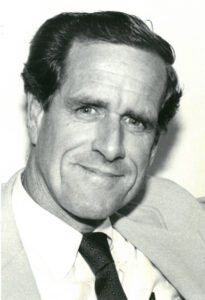
About Russ Edgerton
Throughout his career, Edgerton served higher education as:
The first staff member and Associate Director of the Fund for the Improvement of Postsecondary Education (FIPSE);
President of the American Association for Higher Education
Senior Program Officer for Higher Education at The Pew Charitable Trusts
Director of the Pew Forum for Undergraduate Education.
His thoughtful and visionary leadership in those roles helped establish many innovative undergraduate education reforms, initiatives, movements, and organizations including but not limited to:
The American Association for Higher Education (AAHE) Assessment Forum launching the assessment movement in higher education and accrediting
The AAHE Forum on Faculty Roles and Rewards
The Community College Survey of Student Engagement
The Education Trust’s initial creation under AAHE and then spinning off
The Higher Learning Commission’s Academic Quality Improvement Process
The John N. Gardner Institute for Excellence in Undergraduate Education
The National Survey of Student Engagement
The national non-profit organization: Campus Compact
The national non-profit organization, The Education Trust
The support for scholarship on teaching and learning as ultimately advanced by the Carnegie Foundation for the Advancement of Teaching
The Service-Learning Movement
The Southern Association of Colleges and Schools Quality Enhancement Process
The Service-Learning Movement Campus Compact and creation of multi-volumes of resource materials for service learning in specific disciplines
The support necessary to advance the curricular innovations around Learning Communities.
The transformation of Change Magazine into a compelling voice for innovation and discussion of controversial issues in higher education
